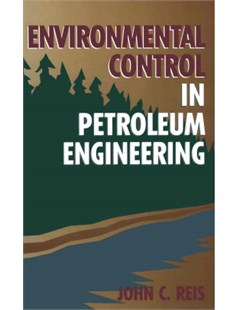Environmental control in petroleum engineering
Introduction to Environmental control in the petroleum industry; Drilling and production operations; The impact of drilling and production operations; Environmental transport of petroleum wastes; Planning for environmental protection; Waste trearment methods; Waste disposal methods; Remediation of contaminated sites; Emvironmental of contaminated sites; Environmental regulations; Senstive habitats;
1996
The petroleum industry must minimize the environmental impact of its various operations. This extensively researched book assembles a tremendous amount of practical information to help reduce and control the environmental consequences of producing and processing petroleum and natural gas.
The best way to treat pollution is not to create it in the first place. This book shows you how to plan and manage production activities to minimize and even eliminate some environmental problems without severely disrupting operations.
It focuses on ways to treat drilling and production wastes to reduce toxicity and/or volume before their ultimate disposal. You'll also find methods for safely transporting toxic materials from the upstream petroleum industry away from their release sites. For those sites already contaminated with petroleum wastes, this book reviews the remedial technologies available. Other topics include United States federal environmental regulations, sensitive habitats, major U.S. chemical waste exchanges, and offshore releases of oil.
Environmental Control in Petroleum Engineering is essential for industry personnel with little or no training in environmental issues as well as petroleum engineering students.
John C.Reis. Environmental control in petroleum engineering, NXb. Gulf Publishing company, Houston, Texas, 1996.
Bộ sưu tập số Công nghệ Hóa học
 |  |  |
| Phân tích hoá học thực phẩm | Giáo trình hóa dược |
Thứ Sáu, 10:17 24/06/2022
Copyright © 2018 Hanoi University of Industry.